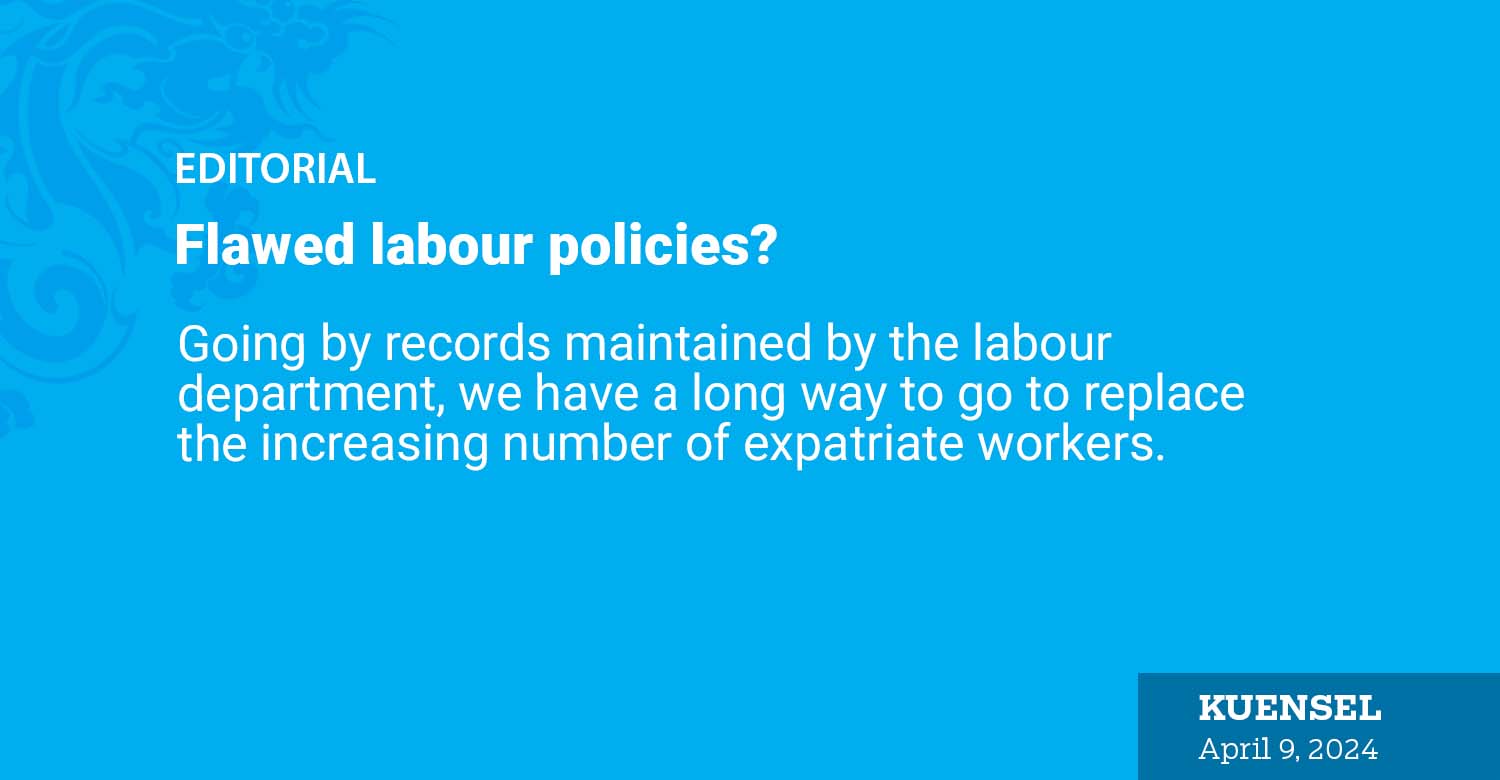Going by records maintained by the labour department, we have a long way to go to replace the increasing number of expatriate workers.
The irony is that while Bhutan is faced with an increasing unemployment problem, the dependence on foreign workers is increasing by the day.
According to a labour ministry’s TVET report, the construction industry hired 71.6 percent of the total foreign workers, followed by 14.4 percent in public administration and defense. The ministry’s own study reveals that the surge in foreign worker approvals indicate a potential gap between labour supply and demand within Bhutan’s local job market. The size of expatriate workers is 19.6 percent of the total population.
Labour shortage is still a problem. The labour ministry or its officials not admitting to the reality is a bigger problem. Worst of all is officials trying to clamp down on people trying to raise an issue or provide feedback based on ground realities that are as concrete as the cement they use in the construction industry.
Every individual builder or contractor knows well the problem of locally available workforce. The construction industry, even if it is not resulting into real growth (not creating jobs, for instance) is important of Bhutan’s gross domestic product
Not resolving this is a bigger issue as it will impede real economic growth, -creating employment. The biggest irony, going by the labour ministry’s own report, is that domestic labour might not be sufficient to fulfil the requirements of vital economic sectors, say the construction industry.
What could help is a change in mentality of policy makers. That Bhutan is dependent on skilled expatriate workers is a reality. Trying to replace them with ill-skilled workers is a big policy error. Those in the construction industry trying to make a living or building a house know the ground reality. The semi-skilled Bhutanese workers are expensive, adding on to the construction cost.
This has direct bearing on the average Bhutanese. High cost of construction or labour means, for instance, results in higher rents. Poor construction quality could have huge repercussions. What we can do, at the least, if not reduce the dependence on expatriates, is understand the ground reality. Trying to find out who spoke to the media about real problems and targeting them is a waste of time and resources.
If people are finding problems with policies, there must be a reason. Targeting them for speaking the truth is another mistake. Feedback is crucial in policy making. If Bhutanese workers, after decades of planning and spending millions of Ngultrum to build a skilled workforce, are not able to help the growing construction industry, the problem is with policy makers and not builders or contractors.
The first step to improve our policies is to listen or admit to policy flaws. Targeting one or two individuals challenging policies will not help anyone.


